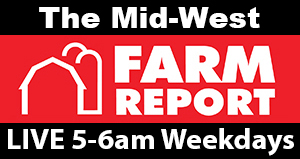
Whether you’re working on the farm with family or you have a town job and coworkers, good communication is vital. But often different generations have different expectations and styles when it comes to sharing information. Angie Coleman, is an organizational development consultant with FCCS consulting. She has done a deep dive on the different generations in the workforce right now and shares some key takeaways for all of us.
From boardrooms to the farm’s kitchen table, communication across generations is part of doing business. But good communication isn’t always easy, Coleman says that when considering generational differences and communication, thinking about the big social and economic events that happened during the formative years is an important piece of understanding that goes beyond just looking at traits or trends. When the “Baby Boom” generation took in headlines from the Watergate scandal or the Vietnam War, their level of trust in media and political leaders dropped compared to the generation before. Today young adults use the internet to find sources they trust and fact check, a shift that may seem small but signals bigger changes in how they think and what they value.
Today one of the limiting factors we see in many agriculture cooperatives is a lack of involvement from younger generations. This has led many cooperative boards to ask what can be done to increase interest in delegate or board leadership roles. Coleman says that because younger generations are more focused on “ESG” (Environmental, Sustainable, Governance) issues, falling back on the core values and founding principles of cooperatives is the right way to gain interest.
Those same ideas also pull through when it comes to hiring. While in the past employees may have been motivated by working for companies that were leaders in their industry, today’s workers are more focused on how the work the company does benefits their community and beyond. While it has long been the practice to hire those with an ag background to work in ag jobs, Coleman reminds us that with less than 2% of the population involved in agriculture, casting a wider net is important. She says focusing on the actual skill set needed to do the job’s functions and training the rest can help to find the right person rather than the wrong person with the right background.

Leave a Reply